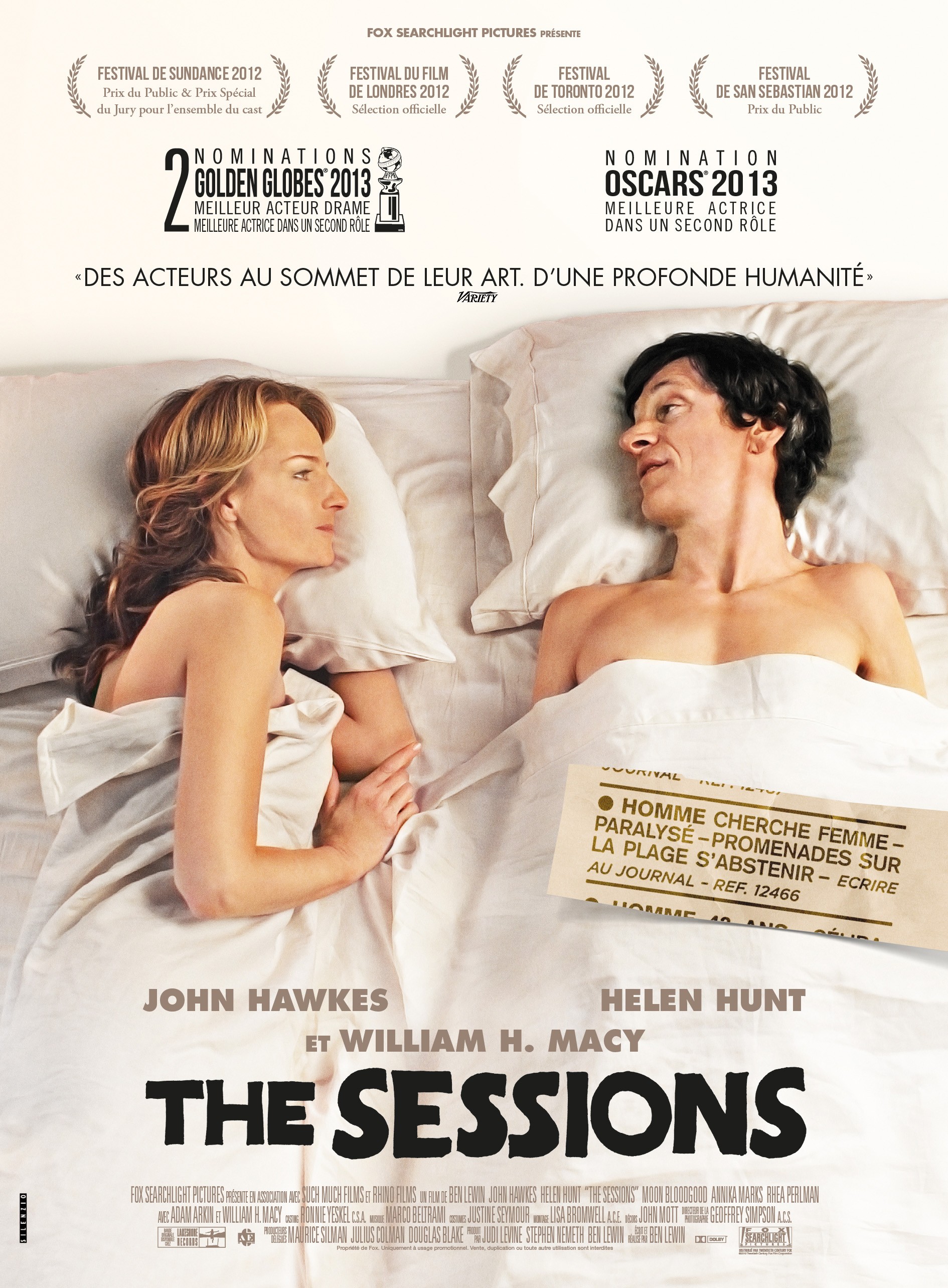The Sessions is about a man who uses an iron lung and who can move only his neck who sees a sex therapist. The Sessions ends supposedly triumphantly--Mark O'Brien, the poet who had polio and requires the iron lung--through embrace of his sexuality--overcomes his self-loathing (he blames himself and his polio for his sister's death), resulting in a happy and fulfilling marriage.
I have three complaints: 1) The transition in Mark's character that is purported to have happened simply doesn't in the film. Supposedly, as a result of seeing the sex therapist, he overcomes his guilt and comes to love himself, resulting in women being attracted to him and one marrying him. The fact is, though, no shift in his character actually happens in the film--at the beginning of the film he is a poetic, charming, witty character, and at the end of the film he is a poetic, charming, witty character.
2) The ending of the film is different from that of the essay on which the film is based. NK found and sent me the essay, "On Seeing a Sex Surrogate." When Mark initially reflects on seeing a sex surrogate in the article, he sees the experience as positive, as mitigating his self-loathing and the oppressiveness of his parents refusal to talk about sex and of Catholic guilt. However, the ending that he wrote to the article before he published it four years later is quite different in tone:
I began this essay in 1986, then set it aside until last year. In re-reading what I originally wrote, and my old journal entries from the time, I’ve been struck by how optimistic I was, imagining that my experience with Cheryl had changed my life.From this final ending of the article, it isn't clear to me that the transition toward loving himself has fully happened. Moreover, seeing the sex surrogate certainly doesn't have the effect that the film leads us to believe of initiating Mark into a happy world of companionship and sex.
But my life hasn’t changed. I continue to be isolated, partly because of my polio, which forces me to spend five or six days a week in an iron lung, and partly because of my personality. I am low-key, withdrawn, and cerebral.
...
I wonder whether seeing Cheryl was worth it, not in terms of the money but in hopes raised and never fulfilled. I blame neither Cheryl nor myself for this feeling of letdown. Our culture values youth, health, and good looks, along with instant solutions. If I had received intensive psychotherapy from the time I got polio to the present, would I have needed to see a sex surrogate? Would I have resisted accepting the cultural standards of beauty and physical perfection? Would I have fallen into the more familiar pattern of flirting, dating, and making out which seems so common among people who have been disabled during or after adolescence?
...
People have suggested several steps I could take. I could hire prostitutes, advertise in the personals, or sign up for a dating service. None of these appeal to me. Hiring a prostitute implies that I cannot be loved body and soul, just body or soul. I would be treated as a body in need of some impersonal, professional service — which is what I’ve always gotten, though in a different form, from nurses and attendants. Sex for the sake of sex alone has little appeal to me because it seems like a ceremony whose meaning has been forgotten.
...
Which leaves me where I was before I saw Cheryl. I’ve met a few women nearly as wonderful as Tracy, but they haven’t expressed any romantic interest in me. I feel no enthusiasm for the seemingly doomed project of pursuing women. My desire to love and be loved sexually is equaled by my isolation and my fear of breaking out of it. The fear is twofold. I fear getting nothing but rejections. But I also fear being accepted and loved. For if this latter happens, I will curse myself for all the time and life that I have wasted.
3) The priest in the film encourages Mark to see the sexual surrogate. The irony of the priest encouraging Mark to see the surrogate is that in Catholicism the celibacy of priests is a testimony to the good of chastity. A life devoid of sex isn't something to be lamented as a life not worth living. Rather, chastity is a positive good that, if embraced, can itself point us toward union with Christ (or at least is a suffering that can be offered up). Mark's priest friend has chosen a life of chastity and should be able to bear witness to the good of that choice to his friend.


No comments:
Post a Comment